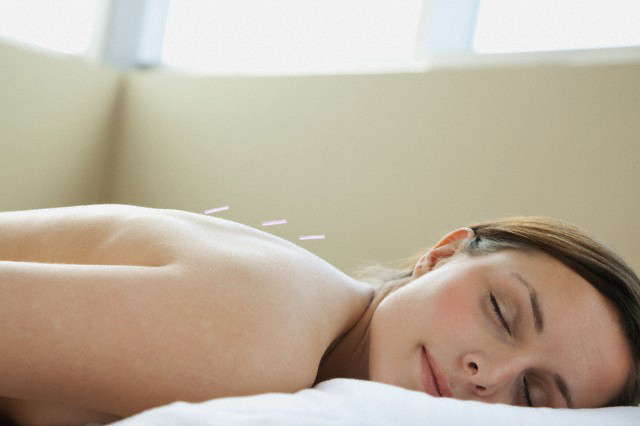Treatments for PMS
We try out a therapy, treatment or specialist retreat in a bid to solve an ongoing health issue – here, Psychologies' Dossier and The Fix editor, Ali Roff, tackles pre-menstrual syndrome

For me, PMS isn’t about mood swings and irritability. It’s a monthly paralysing bout of low self-esteem and detail-driven self-dislike that affects every area of my life.
The treatment
Over the past few years, my usual PMS symptom of manageable irritability has transformed into a numbing self-dislike. Each month, I find myself focusing on small details that crush my self-esteem; from my weight or smile lines, to my intelligence or ability at work. I retreat into myself and clam up. Self-destructive thoughts demand my attention.
I was referred to Dr Cheng at London clinic Anamaya for acupuncture, where he reassured me that many women feel this way; something I have realised myself speaking to friends and colleagues since. It seems that irritability and mood swings are the expected, accepted symptoms, but self-dislike is the unspoken, shameful side of PMS that no-one wants to admit to, even though one in three women suffer from ‘clinically significant’ PMS.*
Dr Cheng explained that my other usual symptoms of bloating and tiredness, along with my self-esteem problems, were blockages. The body expends energy to menstruate, explaining the tiredness. ‘Low esteem and self-dislike from PMS are rooted in the imbalance of the yin and yang,’ explains Dr Cheng. ‘Acupuncture simply helps the body to return to normal function and balance.’ Needles were placed on my feet and shins to balance my kidney and liver. More on my hands for energy, behind my ears for calm, and on my stomach, too.
The outcome
After my first session, I expected to feel happy, but I simply felt like myself – something I hadn’t felt in a long time. To feel self-assured is a great feeling; comfortable in your own skin and in your own head. I was more articulate, more decisive. It was fantastic.
However, a month later, my self-dislike reared its ugly head again. Sometimes, symptoms can get worse after a successful treatment. This time was different though; now my feelings were larger than life, demanding to be heard and I had to deal with them. ‘When the outflow of the emotion is achieved, you will reach a better balance, resulting in lesser symptoms or complete elimination of them,’ said Dr Cheng.
It was a challenge to get through those few days and face my low self-esteem. But once I had, I felt stronger for it. Fast-forward a month and even when I’m not pre-menstrual, I have more courage in my convictions, I’m better at saying no, and I’ve stopped worrying about the small things. And this month, I just had mild, manageable irritablilty – a big improvement.
Photograph: Corbis






